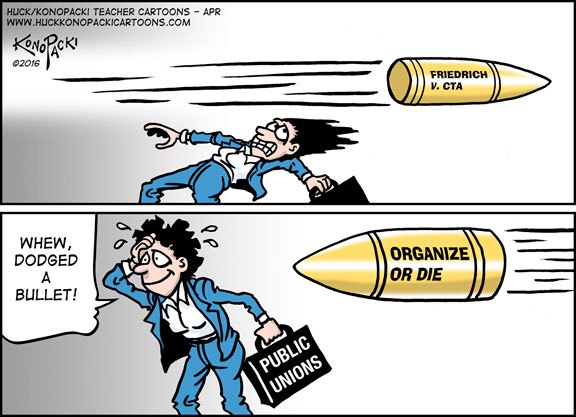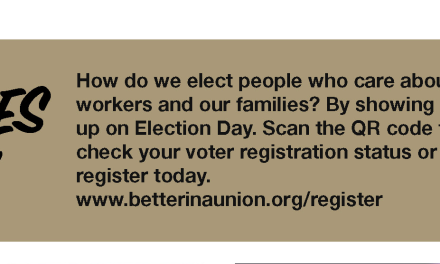When the U.S. Supreme Court decision in Friedrichs v. the California Teacher Association, ended in a 4-4 tie, public-sector unions breathed a collective sigh of relief. Since its initial filing in 2013, labor activists feared the case could deal a crippling blow to public-sector unions throughout the country.
“The judgement is affirmed by an equally divided court,” the justices wrote in a brief, unsigned ruling.
The suit, filed by Rebecca Friedrichs and nine other California teachers, argued that the state’s agency-fee system violated their First Amendment rights by forcing them to subsidize “political activities they don’t support.”
Under California labor law, public employees vote to designate a union as their exclusive collective bargaining representative. The employees cannot be forced to join the union, and those who choose not to are required to pay a lesser “agency fee,” also known as a fair share fee, to help fund the administrative costs incurred by the union in support of collective bargaining activities. The lesser fee helps avoid a free-rider problem where employees benefit from the union’s representation without paying to support it.
The split vote left in place the 1977 decision in Abood v. Detroit Board of Education that set the basis for public employee contracts.
In a statement issued about the ruling from the AFL-CIO, President Rich Trumka said: “[T]oday, working people have persevered in the face of another attack on our rights. All over the country working people are showing that we won’t allow wealthy special interests or their politicians to stand in our way to join collectively and make workplaces better all across America. In the face of these attacks we are more committed than ever to ensuring that everyone has the right to speak up together for a better life.”
This likely won’t be the end of this case for public-sector unions however. Court watchers agree that once the court is back to a full bench, that the plaintiffs will likely ask for the case to be reheard. ■








